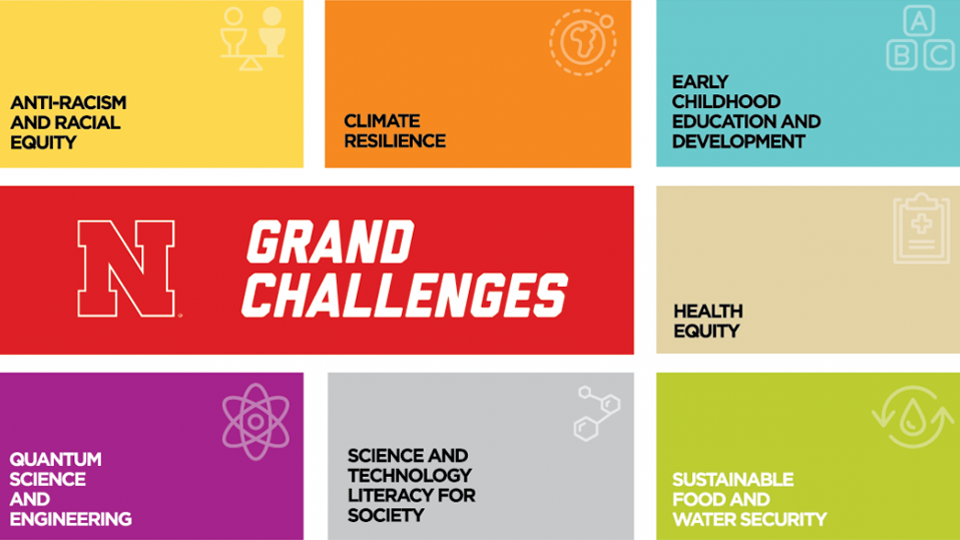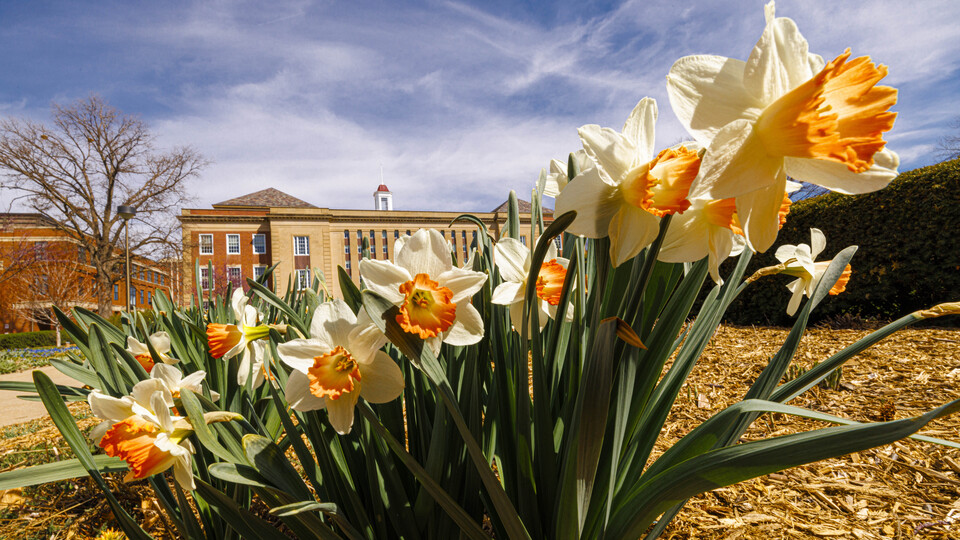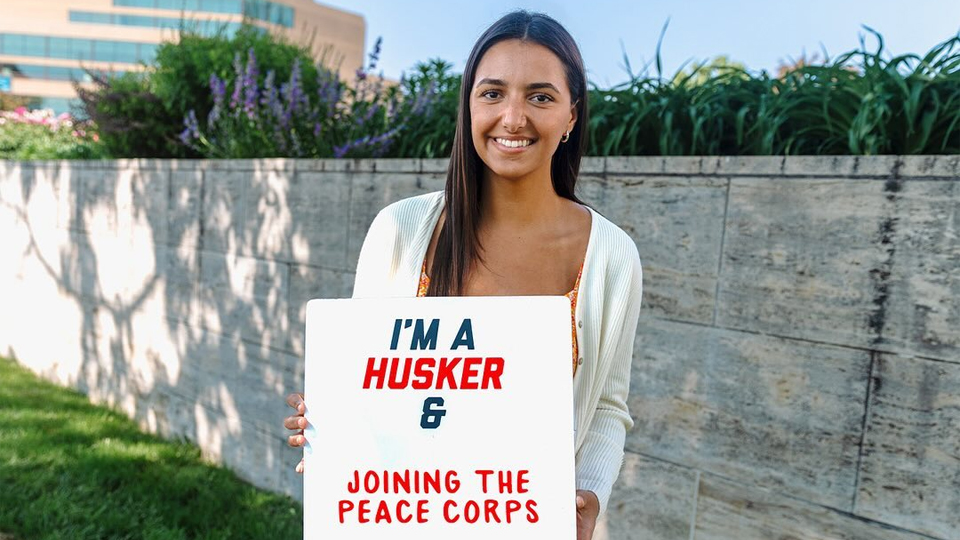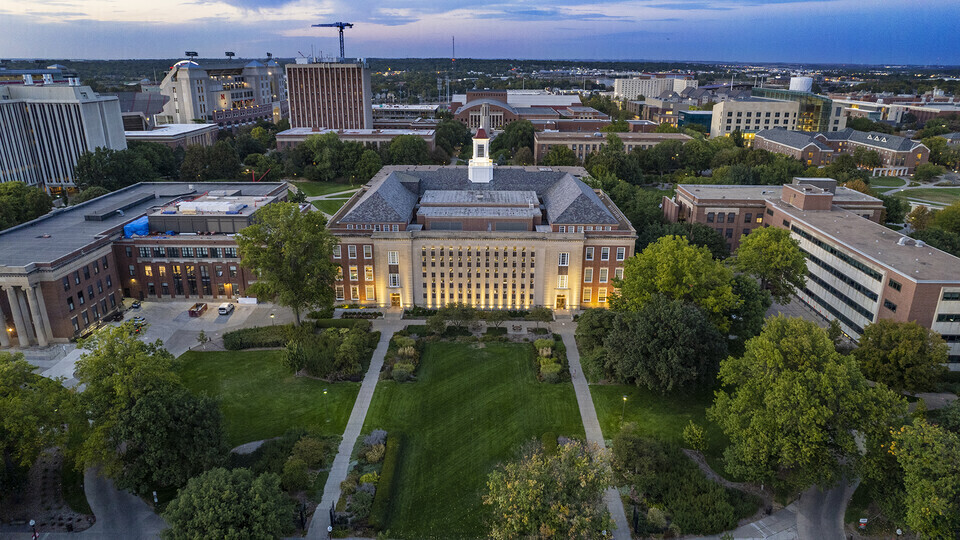
A steering committee has been assembled to guide the next steps of the University of Nebraska–Lincoln's Grand Challenges process. Five faculty members from the College of Arts and Sciences have been selected among those representing campus and were approved by the Chancellor's Executive Leadership Team.
CAS faculty:
- Trey Andrews III, psychology
- Christian Binek, physics
- Clinton Rowe, earth and atmospheric sciences
- William G. Thomas III, history
- Rick Bevins, psychology, interim associate vice chancellor for research
Last year, Chancellor Ronnie Green charged the Office of Research and Economic Development with creating a process to identify grand challenges—large societal problems requiring transformative, interdisciplinary solutions—that Nebraska is uniquely positioned to solve.
"This committee will serve as a bridge from the N2025 Strategic Plan to the development of a process for implementing our Grand Challenges," said Bevins, committee co-chair. "In our first meeting, it was clear that the members care deeply and will work hard to ensure success."
The strategic plan calls for Nebraska to establish a culture committed to increasing the impact of research and creative activity and to focus research, scholarship, creative activity, and student experiences on innovative, interdisciplinary endeavors to solve challenges critical to Nebraska and the world.
More than 500 faculty, staff, students and emeriti helped identify the challenge themes. Descriptions are available on the Grand Challenges website.
A series of fall events will provide opportunities for faculty, staff and students to share goal-based project proposals and form inclusive teams to develop innovative, high-impact funding proposals for work related to the grand challenges.
Chancellor Green and Bob Wilhelm, vice chancellor for research and economic development, have pledged to invest in securing sustainable, external funding and create impactful scholarship and deeper engagement with the community and external partners in order to accomplish the grand challenge goals.


